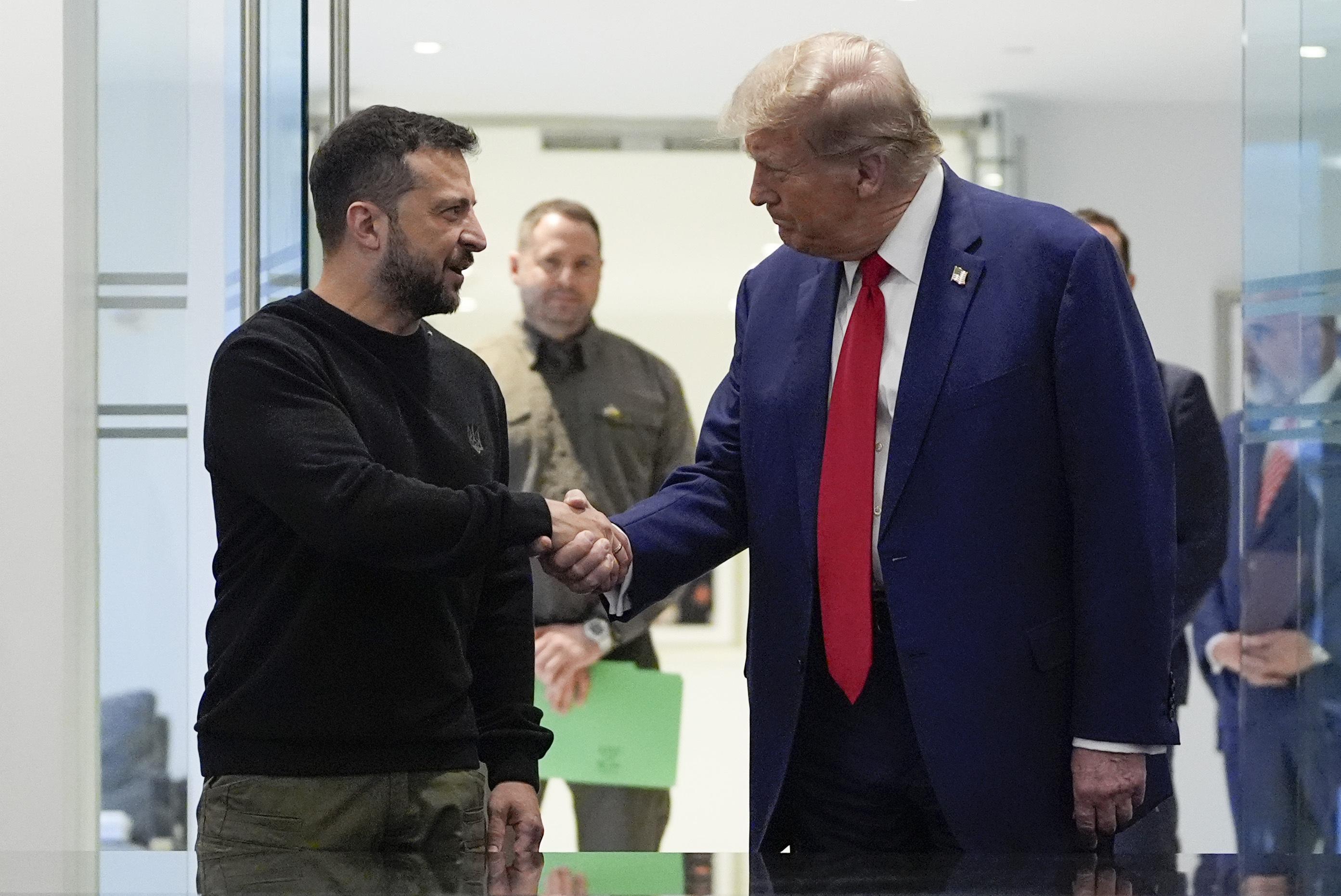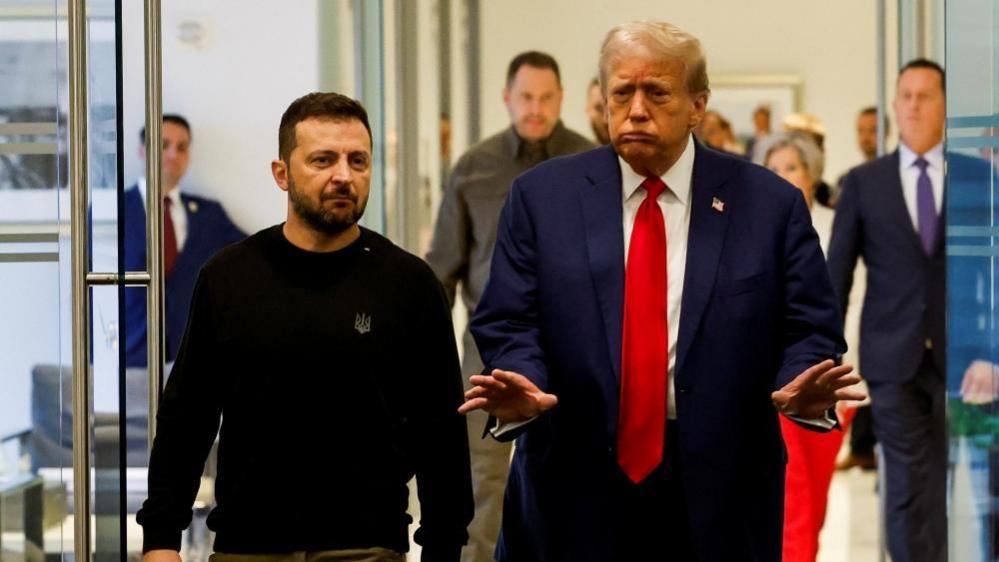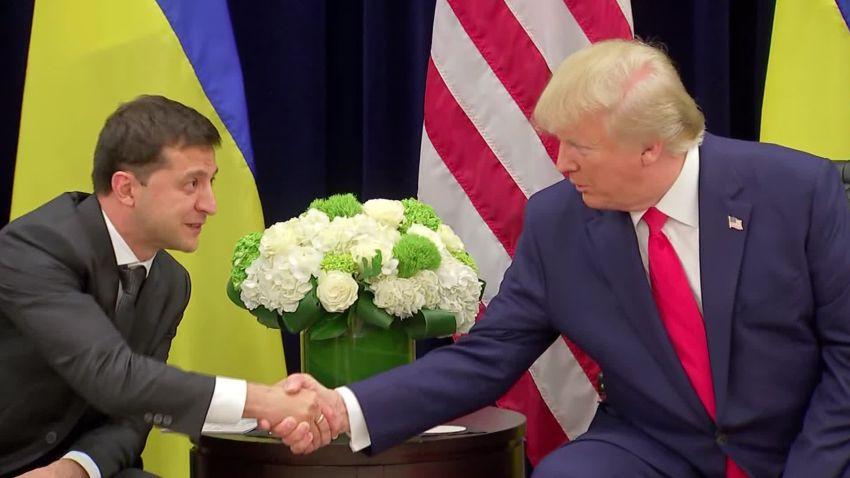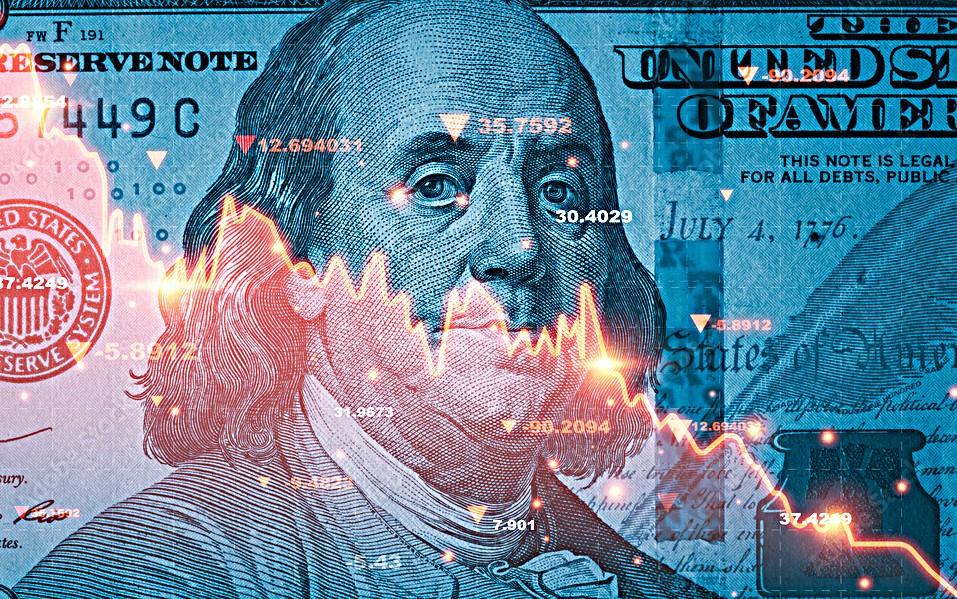On February 28, 2025, U.S. President Donald Trump and Ukrainian President Volodymyr Zelensky met at the White House to discuss critical issues affecting both nations, including a potential partnership over Ukraine's rare earth minerals and strategies to address the ongoing conflict with Russia. What was anticipated to be a constructive dialogue devolved into a contentious exchange, straining the diplomatic relations between the two countries.
Arrival and Initial Proceedings
President Zelensky arrived at the White House amidst a ceremonial display featuring 56 flags representing all U.S. states and territories, alongside the national flags of the United States and Ukraine. This marked Zelensky's fifth visit to the White House, underscoring the significance of U.S.-Ukraine relations. Prior to the meeting, Zelensky engaged with U.S. senators, emphasizing the importance of aligning Ukrainian and American positions on security and economic cooperation.

The Oval Office Meeting
The discussions in the Oval Office were intended to solidify a bilateral agreement on developing Ukraine's mineral resources, with the U.S. poised to receive 50% of the revenue from Ukrainian sales. However, the conversation quickly escalated into a heated argument. President Trump demanded that Zelensky apologize for perceived disrespect and accused him of insufficient gratitude for U.S. support. Zelensky, steadfast in his position, refused to offer an apology, asserting Ukraine's sovereignty and the necessity for genuine security guarantees before considering any truce with Russia.
The confrontation intensified when Vice President J.D. Vance joined in, accusing Zelensky of "disrespecting" the United States and suggesting that his stance could escalate tensions into a broader conflict. The meeting, which was expected to culminate in a joint press conference and the signing of the mineral resources agreement, was abruptly cut short. Zelensky departed the White House without any formal accord, leaving the future of U.S.-Ukraine cooperation in question.
Reactions and Diplomatic Fallout
In the aftermath of the meeting, President Trump took to social media, stating, "Volodymyr Zelensky disrespected the U.S.; come back when he is ready for peace." This public rebuke highlighted the strained relations and cast doubt on the continuation of U.S. support for Ukraine.
President Zelensky, in an interview, expressed that he did not feel the need to apologize, emphasizing the importance of honesty and directness in diplomatic engagements. He reiterated Ukraine's commitment to achieving a just and lasting peace but maintained that genuine security assurances are paramount before any agreement with Russia can be reached.
The international community reacted swiftly to the confrontation. European leaders, including French President Emmanuel Macron and British Prime Minister Keir Starmer, expressed unwavering support for Zelensky, emphasizing the importance of unity and continued assistance to Ukraine. The incident has been described as a diplomatic debacle, raising concerns about the stability of alliances and the future of collective security efforts in the region.

Implications for U.S.-Ukraine Relations
The abrupt and contentious nature of the meeting has introduced significant uncertainty into the U.S.-Ukraine partnership. The anticipated mineral resources agreement, which aimed to bolster Ukraine's economy and provide the U.S. with strategic materials, remains unsigned. Additionally, the strained personal rapport between the two leaders may impact future diplomatic engagements and the provision of military aid to Ukraine.
Domestically, the incident has elicited a spectrum of responses. Some U.S. officials defended President Trump's assertive stance, suggesting it was a necessary measure to prompt negotiations. Others criticized the approach, warning that such public confrontations could undermine international alliances and embolden adversarial nations.
Looking Forward
As the situation develops, the onus is on diplomatic channels to mend the rift and restore constructive dialogue. Both nations have vested interests in resolving the conflict with Russia and fostering economic growth through collaborative ventures. The path forward will require measured diplomacy, mutual respect, and a recommitment to shared goals to overcome the current impasse and strengthen the bilateral relationship.










